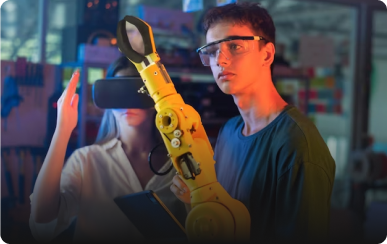Early Life and Academic Pursuits
Saleh Almasoudi’s journey began in the northeast of Mecca, where he was raised in a small village known for its clean water and good air quality. His academic path took him from a bachelor’s degree in chemistry at Umm Al-Qura University in Mecca to advanced studies in environmental science at King Abdulaziz University. His master’s research focused on wastewater treatment during the Hajj pilgrimage, a critical issue given the massive influx of people to Mecca annually.
Desalination: A Crucial Technology for Arid Regions
In the podcast, Saleh emphasized the significance of desalination in regions with limited freshwater sources. Saudi Arabia, leading the world in desalination, relies heavily on this technology to meet the water needs of its population, particularly during events like Hajj. At these times artificial sources of water are stressed to system-breaking capacity as there are no other natural sources that provide a baseline to meet the demands. In these cases system failures and system bottlenecks can lead to loss of life and pose a significant challenge but also an opportunity to scale and improve.
“Most of the water provided for the pilgrims in Mecca comes from desalination plants in Jeddah,” Saleh explained. He highlighted the two primary desalination technologies: thermal desalination and membrane desalination, particularly reverse osmosis (RO).
Challenges and Environmental Impact
While discussing the technical aspects, Almasoudi didn’t shy away from the challenges associated with each method. Thermal desalination, although widely used, is energy-intensive and costly. On the other hand, RO is more energy-efficient but has significant environmental impacts due to the high concentration of salt byproducts that are often discharged back into the sea.
“Each method has its advantages and disadvantages. Countries choose based on their specific needs and capabilities,” Almasoudi noted, stressing the importance of balancing technological advancement with environmental sustainability.
Global Water Scarcity
Water scarcity isn’t just a regional issue; it’s a global crisis. Almasoudi cited alarming statistics from the United Nations and UNICEF, revealing that over a billion people lack access to clean water, with billions more experiencing water shortages at least once a year. This scarcity leads to severe health issues, including diseases like cholera, as people resort to using contaminated water sources.
Investments in Desalination Technologies
Investment in desalination technologies has surged in recent years as countries and companies recognize the critical need for sustainable water solutions. Governments in arid regions are allocating substantial budgets to develop and upgrade desalination plants. For instance, Saudi Arabia has committed billions to enhancing its desalination capacity, aiming to increase efficiency and reduce environmental impact through innovative technologies. These investments are crucial in ensuring long-term water security and addressing the growing demands of urban populations and agricultural needs .
Funding by Global Investment Funds
Global investment funds are also playing a pivotal role in the advancement of desalination projects. Major financial institutions and private equity firms are pouring capital into desalination ventures, attracted by the potential for significant returns and the opportunity to contribute to solving one of the world’s most pressing challenges. Funds such as BlackRock and the Carlyle Group have invested heavily in desalination infrastructure, recognizing its importance for future sustainability. These investments are not only boosting technological advancements but also driving down costs, making desalination a more viable option for water-scarce regions worldwide.
Saudi Arabia’s Vision 2030
Looking forward, Almasoudi shared his optimism about Saudi Arabia’s Vision 2030, spearheaded by Crown Prince Mohammed bin Salman. This ambitious plan aims to diversify the economy and reduce the kingdom’s reliance on oil. Part of this vision includes advancing desalination technologies and improving water management practices to ensure sustainable development.
Innovative Research and Future Prospects
In his Ph.D. research, Almasoudi is exploring the impacts of wildfires on air quality and investigating environmental free radicals. His work aims to raise awareness about environmental issues and contribute to finding sustainable solutions.
“We aim to serve our environment and our planet by studying environmental issues and their impacts, striving to make a positive difference,” he affirmed.
Conclusion
Saleh Almasoudi’s insights on the NewTIFI podcast underscored the critical importance of sustainable water management. His work and research highlight the challenges arid regions face and offer hope through innovative solutions and international collaboration. As climate change and population growth strain global water resources, experts like Almasoudi provide valuable guidance on navigating these complex issues.
For more information and to listen to the full podcast episode, visit NewTIFI’s website.



